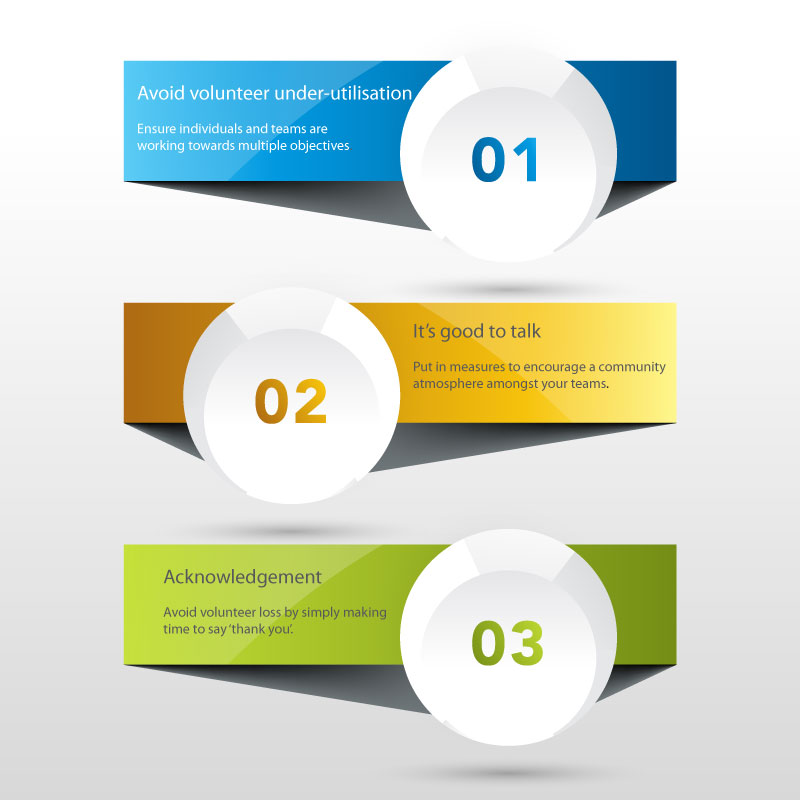Counting on volunteer support to achieve an overriding goal is a necessity for charitable organisations. Yet the perception of free labour can be a poisoned chalice for Fundraising Managers, as the true value of the extended workforce has costly and risky realities if not managed effectively. The value of volunteers is subject to interpretation, but calculating their economic value is still a worthwhile exercise that has major benefits for a number of charity stakeholders.
First impressions count
As discussed in a previous blog, first impressions are really important to potential volunteers thinking about joining a charitable cause. Simplifying the application process and having a formal on-boarding procedure can really help to attract volunteers in the first instance.
Ongoing relationships for volunteers
Keeping volunteers engaged and enthused can be a challenge, that is of course, once volunteers are successfully signed up. Just like paid staff, retention isn’t an exact science to measure management success by. Naturally, people move on. But that said, longer serving teams are stronger than teams of new recruits, if morale is high.
Simple best practices that can take place once the volunteer is on-board include:
Simple best practices that can take place once the volunteer is on-board
- Avoid volunteer under-utilisation: volunteers join causes in order to make a difference, and being under-utilised undermines their original intentions. It is clear how and why it happens. Volunteer leaders are left with a tightrope task of balancing the right volume of work in line with not becoming too dependent on voluntary resource. Ensure individuals and teams are working towards multiple objectives, including short-term priority tasks, as well as medium-term goals.
- It’s good to talk: non-paid members of the team also have a hierarchy of needs that leaders need to address. Charities can indirectly prove how much the organisation values its volunteers by putting in measures to encourage a community atmosphere amongst your teams. Regular engagement is the key to success.
- Acknowledgement: lack of recognition is a regular recurring motivation for supporters to take a step back from a cause. Jamie Ward-Smith, founder of Do-it Trust – a volunteer organisation – advises charities to avoid volunteer loss by simply making time to say ‘thank you’. “Whilst most volunteers don’t expect a big fuss, making sure they know they are appreciated will make the difference to their coming back and recommending you to their friends.”
Funding and budget justification
The true financial value of volunteering as a resource is an undefined, controversial debate. This is probably why it is not a required total within charity accounts. Being able to assign a definitive metric against each individual volunteer would help charity leadership in applying for grants and funding for specific campaigns or even justify existing budget.
So whether it’s a direct funding requirement, for the benefit of senior leadership, or simply for the sake of volunteer morale, there is a strong case that charitable organisations should be recording the value of volunteers and sharing that proof.
A professional fundraising management system can help to deliver purposeful, consistent inductions which put emphasis on how much the charitable organisation values its working relationships. It provides charities with the tools to easily and effectively communicate gratitude and personalised communications. And lastly, it can capture volunteer activity on a person-by-person, team-by-team or even campaign-by-campaign level; helping charities to identify their own values and metrics behind their good work.


